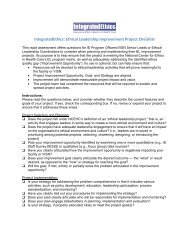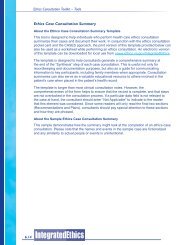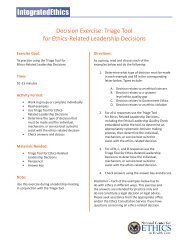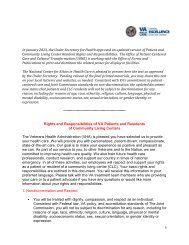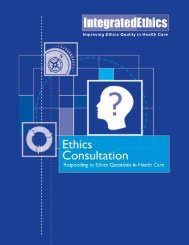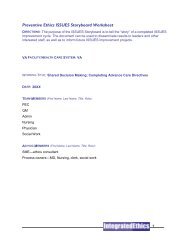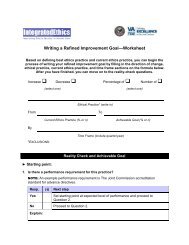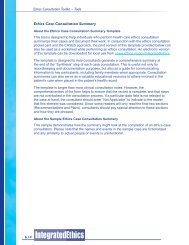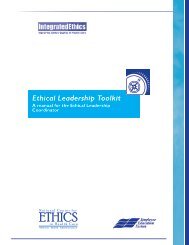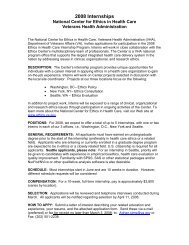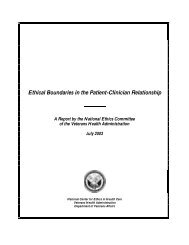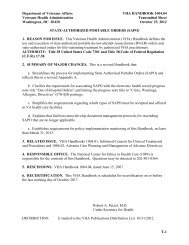Ethical Leadership: Fostering an Ethical Environment & Culture ...
Ethical Leadership: Fostering an Ethical Environment & Culture ...
Ethical Leadership: Fostering an Ethical Environment & Culture ...
You also want an ePaper? Increase the reach of your titles
YUMPU automatically turns print PDFs into web optimized ePapers that Google loves.
Tools for <strong>Ethical</strong> <strong>Leadership</strong>Tavistock PrinciplesRights—people have a right to health <strong>an</strong>d healthcareBal<strong>an</strong>ce—care of individual patients is central, but the health of populationsshould also be our concernComprehensiveness—in addition to treating illness, we have <strong>an</strong> obligation toease suffering, minimize disability, prevent disease <strong>an</strong>d promote healthCooperation—healthcare succeeds only if we cooperate with those we serve,each other, <strong>an</strong>d those in other sectorsImprovement—improving healthcare is a serious <strong>an</strong>d continuing responsibilitySafety—do no harmOpenness—being open, honest <strong>an</strong>d trustworthy is vital in healthcareSource: The Tavistock Group. Shared ethical principles for everyone in health care: a working draft from theTavistock Group. BMJ 1999;318:248-51. Available at http://www.bmj.com.Aims for Improvement in Health CareSafe—avoiding injuries to patients from the care that is intended to help themEffective—providing services based on scientific knowledge to all who couldbenefit <strong>an</strong>d refraining from providing services to those not likely to benefit(avoiding under use <strong>an</strong>d overuse)Patient-centered—providing care that is respectful of <strong>an</strong>d responsive to individualpatient preferences, needs, <strong>an</strong>d values <strong>an</strong>d ensuring that patient values guide allclinical decisionsTimely—reducing waits <strong>an</strong>d sometimes harmful delays for both those whoreceive <strong>an</strong>d those who give careEfficient—avoiding waste, in particular waste of equipment, supplies, ideas, <strong>an</strong>denergyEquitable—providing care that does not vary in quality because of personalcharacteristics such as gender, ethnicity, geographic location, <strong>an</strong>d socioeconomicstatusSource: The Institute of Medicine. Crossing the Quality Chasm: A New Healthcare System for the 21 stCentury. Washington, DC: National Academy of Sciences Press;2001. Available at http://www.iom.edu/report.asp?id=5432.50



